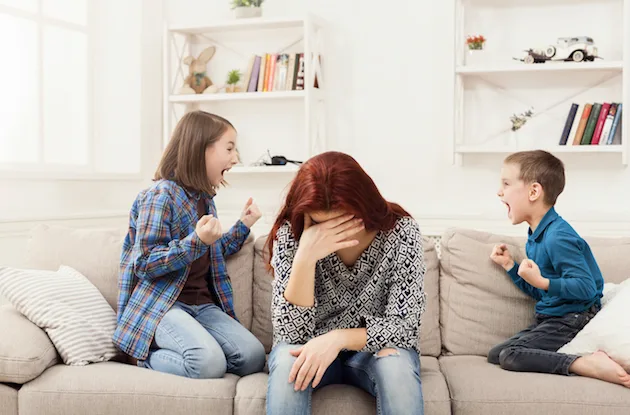Striking the right balance between permissiveness and restrictions on social media usage
Bullying and harassment. Embarassing photos and posts forever searchable. Personal information put out for the whole world to see. These are just some of the concerns parents may have as their kids come of age and embrace social media.
The questions and dilemmas are endless: Should your child be allowed to post photos that show her face? Or develop an online friendship with another child across the country? Should you use a GPS app to track your child’s whereabouts? How do you start the conversation with your kids about the ramifications of sexting?
It may feel to some of us like we only recently adjusted to life with Facebook and Twitter, maybe Pinterest and Instagram—and here come even newer platforms, such as Snapchat and Periscope, posing their own set of challenges. Just how should you make sense of this new digital world and what it means for our kids?
Much as some parents may want to, it’s no longer possible to avoid using social media—it’s where we share and receive information, stay connected with our social circles, and make new connections. And what’s true for us grown-ups will be true for our kids, sooner or later (probably sooner); they will be joining social networks and downloading social media apps. It can be hard to know how to strike the right balance between permissiveness and restrictions on social media usage, so we asked the experts for help.
RELATED: Does Parents’ Media Use Affect Kids?
The Good and Bad of Social Media for Kids
Because this is the first generation of kids to go through their formative years using social media, discerning what impact it has on them is tricky. On one hand, they have more avenues than ever to build connections and friendships with their peers. On the other, exposure to public criticism and bullying can take a toll on their self-esteem.
A majority of teens say they feel more connected to their friends’ lives and feelings due to social media, according to a 2015 study by the Pew Research Center. At the same time, a majority of teens also say that they’ve experienced drama between friends on social media. Anxiety about what other friends are posting can also lead to FOMO, the “fear of missing out.”
But the news is not all bad.
Social media also can provide support and acceptance to kids who are feeling marginalized in their offline lives. Research has shown that today’s teens are less lonely than ever before, possibly because advances in technology have allowed them to become more individualized and socially adept.
Laurie Wolk, family coach and author of Girls Just Want to Have Likes: How to Raise Confident Girls in the Face of Social Media Madness, encourages parents to not let themselves be paralyzed by social media fear. “Parents should look at it like you have a lens into your child’s life that our parents never had,” she says. “My parents never knew when I was left out or how girls my age were dressing, so you can have conversations with them about what you can see.” Wolk recommends parents take advantage of this lens and use it as a jumping-off point for conversations with their children about what’s going on in their life.
It’s essential that kids understand their words and actions can be harmful even when they’re online, says Katie Schumacher, founder of the Don’t Press Send campaign, which encourages responsible social media use. “Social media is not the problem, it’s when it’s used and abused in ways that are hurtful,” she says. “We have all—myself included—given our children devices they are not mature enough for. Because the social and emotional growth of an adolescent, they are impulsive by nature, and now we’re giving them a device where they can be impulsive.” Because of this, Schumacher believes parents need to explain the serious consequences social media mistakes can have. Sending private photos while you’re underage can lead to real trouble, to name just one.
RELATED: Study Reveals Teens’ Media Usage
Regulating and Policing Kids’ Social Media
So just how should parents approach the task of making sure their kids are being safe with social media? In addition to the many privacy settings most apps offer, Schumacher says it comes down to knowing your kid and what he can handle. While some teens are impulsive, others can handle more independence. Schumacher thinks boundaries are important, and while she knows what apps her kids are using and follows them with her own account, she says parents can go overboard with policing. “It’s very important that my kids know that I trust them and it’s my job to make them independent,” she says.
Don’t Press Send offers guidelines and suggestions for parents who want sensible rules for their children, including what they can and can’t share online and what the consequences will be if the rules are broken.
Wolk suggests parents should set boundaries and discuss them with their children so they understand their parents’ motivations and values. “Pick what’s important for your family and explain that to your child. And let them know you can discuss it with them if they have legitimate arguments,” she says. She thinks kids should be able to speak up if they feel the rules are unfair, but certain rules can be non-negotiable. Her website includes social media agreements that prompt families to decide what they feel is important to them and encourage two-way conversations.
Age Limits on Social Media
Most social media platforms have minimum ages for their users, though many parents break those rules and allow their kids to use social media sooner. At the same time, reaching those ages is no magic moment and not all kids are ready for all media at the same time.
As technology becomes an even bigger part of our lives, deciding when to let kids start using social media is tough. Wolk recommends holding off for as long as possible. “Don’t start giving your kids lollipops before they know what sugar is—there’s no reason to develop that taste. But if your kid is interested and intrigued and they’ve got friends that are socializing through it, I say let’s get on board at the same time and start the conversation,” she says.
Schumacher gave her kids phones when they got to middle school, after realizing they would be at a social disadvantage without one. And while she set down strict rules and consequences, she loosened the reigns once they got to high school, and at that point she stopped reading their texts. “Every parent has to do what they feel is best. But I know what they’re on, they know what I do, and they know the phone will be mine if they don’t abide by the rules,” she says. Since the phone is their lifeline to their peers and friends, Schumacher says that temporarily cutting off access after a rule is broken is enough motivation to never do it again.
RELATED: Common Social Media Apps Beyond Facebook and Twitter


















